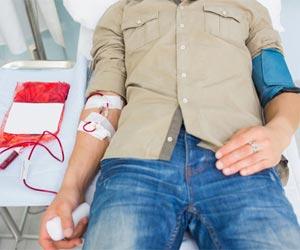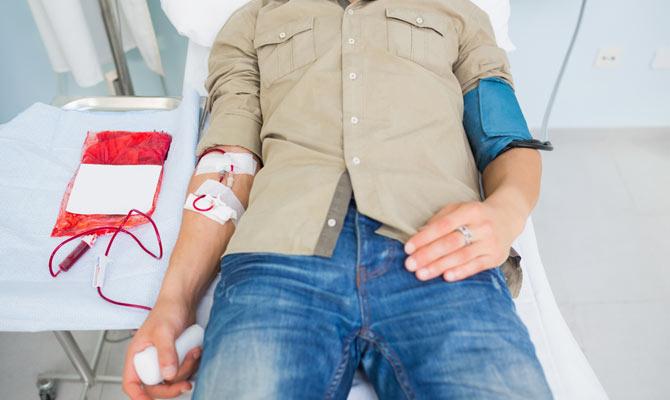Researchers found that severe trauma patients (those with an injury that has the potential to cause long-term disability or death) with blood type O had a death rate of 28 percent, compared to a rate of 11 percent in patients with other blood types


ADVERTISEMENT
Representational picture
Washington D.C.: Turns out, blood type O patients may have a higher risk of death from severe trauma. According to a research conducted by the Biomed Central, blood type O is associated with high death rates in severe trauma patients, which involved 901 Japanese emergency care patients.
Researchers found that severe trauma patients (those with an injury that has the potential to cause long-term disability or death) with blood type O had a death rate of 28 percent, compared to a rate of 11 percent in patients with other blood types.
Wataru Takayama, the corresponding author said, "Recent studies suggest that blood type O could be a potential risk factor for hemorrhage (bleeding in large quantities). Loss of blood is the leading cause of death in patients with severe trauma but studies on the association between different blood types and the risk of trauma death have been scarce. We wanted to test the hypothesis that trauma survival is affected by differences in blood types."
Patients with blood type O have been shown to have lower levels of von Willebrand factor, a blood clotting agent, than those with other blood types. Lower levels of von Willebrand factor may be linked to higher levels of hemorrhage.
The authors suggested that a lower level of the factor is a possible explanation for the higher death rate in trauma patients with blood type O.
Takayama said, "Our results also raise questions about how emergency transfusion of O type red blood cells to a severe trauma patient could affect homeostasis, the process which causes bleeding to stop, and if this is different from other blood types. Further research is necessary to investigate the results of our study and develop the best treatment strategy for severe trauma patients."
The authors used data from medical records of 901 patients with severe trauma who had been transported to either of two tertiary emergency critical care medical centers in Japan during 2013 to 2016.
The authors cautioned that all the patients whose data were analyzed in this study were Japanese and therefore there is a need for further research to understand if the findings apply to other ethnic groups.
Additionally, there was no evaluation of the impact of the individual blood types A, AB or B on severe trauma death rates. Instead, the authors compared type O to non-O blood type which may have diluted the effect of individual blood types on patient survival.
The study appears in the open access journal Critical Care.
Catch up on all the latest Crime, National, International and Hatke news here. Also download the new mid-day Android and iOS apps to get latest updates
This story has been sourced from a third party syndicated feed, agencies. Mid-day accepts no responsibility or liability for its dependability, trustworthiness, reliability and data of the text. Mid-day management/mid-day.com reserves the sole right to alter, delete or remove (without notice) the content in its absolute discretion for any reason whatsoever
 Subscribe today by clicking the link and stay updated with the latest news!" Click here!
Subscribe today by clicking the link and stay updated with the latest news!" Click here!







